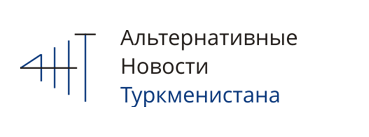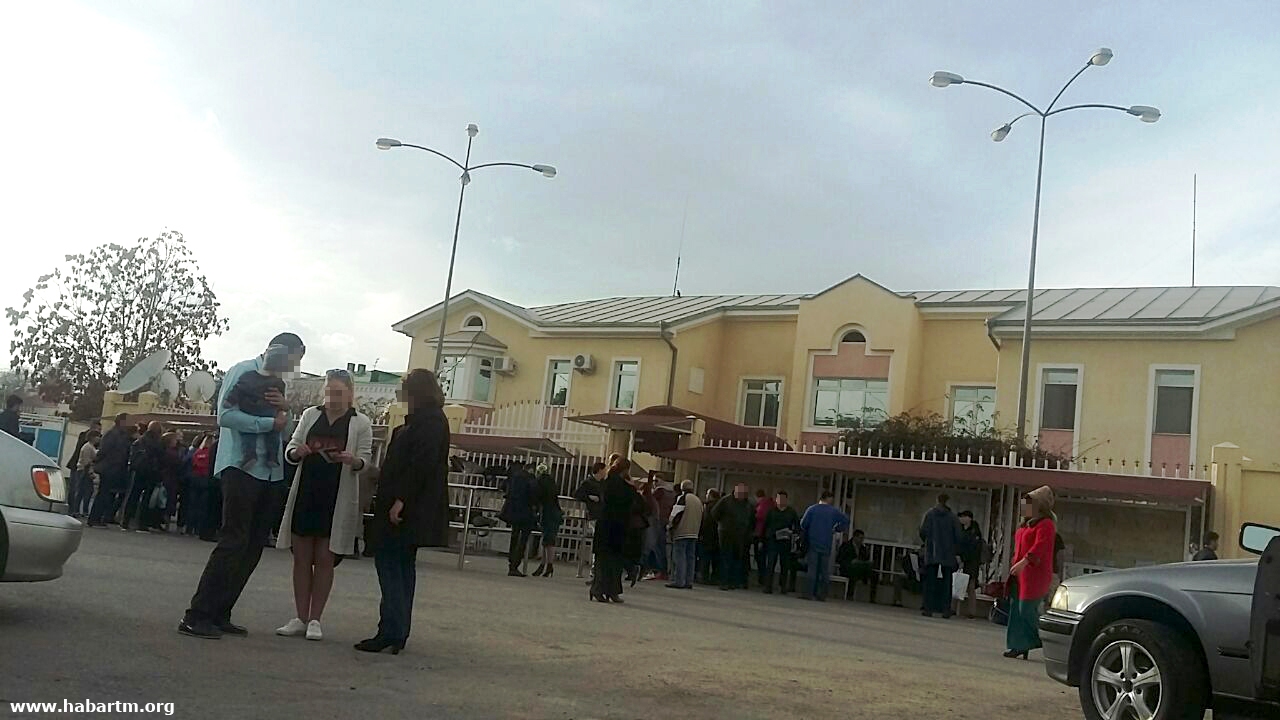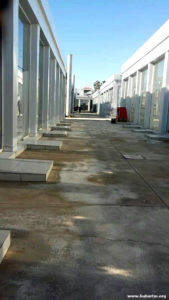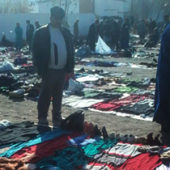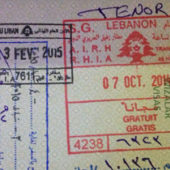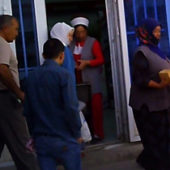Ever increasing numbers of Turkmen citizens are desperate to find work abroad, according to correspondents for Alternative Turkmenistan News (ATN). Though parliament has chosen “Turkmenistan – Motherland of Prosperity” as the country’s slogan for 2019, it hasn’t stemmed the exodus.
ATN correspondent Azat Hatamov has been talking to would-be migrants outside the Russian consulate in the Turkmen capital Ashgabat. He found that for some Russia is now a more popular destination than Turkey, as the numbers of migrants and refugees have driven down wages there.
***
It’s less than a year since I was last in the First Park area of Ashgabat at the request of ATN – this is the location of the consulate of the Russian Federation, which has recently become a popular and crowded spot. There are lines again, just as last year. It’s a day when the consulate provides visa services to the public (four times a week), but my fellow countrymen said that other days are just as busy too.
“These people are standing in line for a visa,” a man by the name of Kakageldi said, “while over there they’re waiting for other services – citizenship, permission for temporary residence, certification of a clean criminal record, legalization of documents. And this family is completing the paperwork for the benefit for families with multiple children.” Kakageldi knows his way around the crowd very well, as though he were at home introducing me to members of his family.
Kakageldi himself is an economist with a degree from Russia. He’s standing in line to get a one-year business visa. He’s sure that he’ll be able to find suitable work and accommodation in Russia and in future extend his stay.
It’s the lack of permanent employment that is forcing him to leave his country. A few years ago Kakageldi successfully managed several shops at the Bereketli market on Atamurat Niyazov Avenue on behalf of a well-off owner. The owner hired him as a qualified specialist and paid him a decent salary. Everything seemed to be going OK until the market administration or the local authorities decided to renovate the market.
All the shops were demolished, the area was enlarged and new retail outlets were built. No compensation was given to the shop owners, nor were they provided with new locations – worse still, they were offered the opportunity to buy at a higher price than before and to pay a bribe on top. The businessmen were not expected to refuse the offer, but they did.
Today 80 of the 164 shops are empty, their glass frontage sparkling in the sunshine. Around 15 shops are full of goods, in other words, they’ve been bought up, but they are permanently closed, presumably because of a lack of customers. It’s only the central part of the market that is doing any business.
“I suggested to my owner that he take his case to the prosecutor’s office and the courts and either get his money back or demand a new shop free of charge, but he just waved me away: you know yourself that the law doesn’t work in this country. And most important, he was one of them himself [Kakageldi tapped himself on the shoulder three times to indicate an employee of the police or security services], so he must know what he’s talking about.”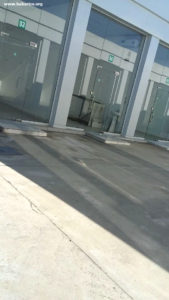
Since then Kakageldi earned money where he could, including washing cars when times were hard. He approached other businessmen too, but they didn’t need staff or if they did offer anything, it was for such a miserly sum that he would have been ashamed to bring it home. He looked for work in the main retail chains but at that time the leadership of A-Market was hanging by a thread. (In February 2017 the supermarket’s owner Dovlet Atayev was sentenced to 25 years for supposed links with Turkish preacher Fethullah Gulen’s movement.) There were no vacancies at another well-known supermarket chain, Kamil, either.
“I met up with my old boss recently and he admitted over a few drinks that he envied me. He said he would go and work abroad too if he could, but like all current and former national security employees he’s not allowed to leave,” Kakageldi said. “His parting shot was, ‘if you can, stay there – there’s nothing to do here now.’”
We had to interrupt our conversation, as Kakageldi’s turn has come to go inside the consulate.
Good business for middlemen
I strolled beside the gates, standing for a while with every group. The majority of people here want to get a visa, and most of them are applying for a business or even work visa. Demand for visas has risen so steeply recently that offers of assistance in providing invitations, obtaining visas and even moving for good have appeared on popular advertising sites in Turkmenistan.
A business visa is provided for one year and costs 330 U.S. dollars. The procedure takes between 40 and 60 days, depending on the agents. A work visa provides more opportunities: to stay on Russian territory for three years with no requirement to leave the country every three months and then return. However, by Turkmen standards a work visa obtained through agents costs a small fortune – $2000. And that’s in cash with all of it paid upfront. In both instances the agents promise an “above board” invitation from a real employer and offer to find work in any region of Russia.
“Yes, their services are expensive, but what can you do. I don’t have the contacts in Russia who could invite me,” a young man of around 30 called Kerim said. “Many people borrow from loan sharks at rates of 18-20%, leaving valuables as surety. I borrowed money from my many relatives.”
One gave the young man 100 dollars, another $300. Kerim is sure that over time in Moscow he will be able not only to pay back the debt, but to support his family, including their three children. His neighbor is an example to him – he went to Russia for four years and came home and bought himself a Toyota Avalon, admittedly second-hand. Now the neighbor is a taxi driver.
“What can I do? Our country is supposed to be prosperous, but there’s no work,” he said.
Problems for migrants in Turkey
Kerim doesn’t want to go to Turkey. He says they’ve got their own crisis. The influx of people from Central Asia and refugees from Syria means that workers are paid pennies. While a couple of years ago a handyman could earn 700 dollars a month working in a private building in Istanbul, now he would be paid no more than $300. Second, the Turkish authorities have made the procedure for obtaining work and residence permits much tougher, making it practically impossible.
“If you don’t legalize your position within a month, you have to return to Turkmenistan, or stay as an illegal, which means that any employer who is aware of your situation will exploit you like a slave and pay a pittance, if he pays you at all,” he said. “On top of that, you’ll be a marked man when you do go to Turkmenistan. As a minimum, you won’t be able to leave for two years, but in the worst case scenario our authorities will frame you with some serious charge, for example, fighting in Syria, and you’d have a hard time trying to clear your name.”
Working abroad a tough but viable option
In the advertisements agents offer to arrange migrant status too. The full package is promised in 90 days, although many people who submit their documents independently have to wait a year or more. The people in line outside the consulate know about these services but don’t have the money to complete everything more quickly and leave. So they have to go through all the bureaucratic procedure themselves.
It’s not the first time that I’ve mixed with the crowds outside the Russian Federation consulate. I’ve noticed that there are fewer Slavs with every passing year, while the number of ethnic Turkmen increases. I’ve drawn the following conclusion: the deteriorating situation in the country is pushing people to look for something better. A good many reject the Turkish lira and head for Russia for the easy rouble, tying their fate to the country. I think that for people who have patience as well as a degree and experience, who are ready to overcome any difficulties and to start from the bottom, things will certainly work out. After all, migrants from our neighboring countries manage OK.
Аzat Hatamov
